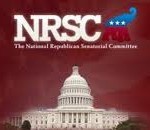
What I Learned as a Foreclosure Attorney
 A sizeable chunk of my legal career has been spent neck-deep in the morass of the foreclosure wave that has wreaked havoc across the land several years ago. If you wonder what has made me cynical about both the economy and the competency of government, it was my year doing foreclosures.
A sizeable chunk of my legal career has been spent neck-deep in the morass of the foreclosure wave that has wreaked havoc across the land several years ago. If you wonder what has made me cynical about both the economy and the competency of government, it was my year doing foreclosures.
First of all, I am not the big expert, and this is in no way legal advice; I worked long enough to learn how the process works and how it ties in to real estate market and the economy as a whole. I think I have put the picture together reasonably well, and I have learned a few things about our national obsession with real estate.
Banks Do Not Hold Mortgages
The fact that mortgages are syndicated and securitized – a high-end way of saying that they are sold off and bundled into bonds, because I have the diplomas and still harbor an urge to use them – has reached public knowledge for the most part.
The bank might sell the note and mortgage to a mortgage servicing company or hold them in their own servicing division, but either way the “beneficial ownership†is sold off, often to Fannie Mae, Freddie Mac, or into an Asset-Backed Pass Through assembled by an investment bank – the mortgage-backed securities which made headlines in 2008 and are now being bought up by the Federal Reserve at $45 billion per month. The banks stay involved only as servicing agents.
This is why a foreclosure case’s name is so long; things like “XYZ Bank NA, as Trustee under agreement dated May 1, 2004 for Asset Backed Certificates Series C-2004 v. Joe and Jill Serfdomfaller,†are common.
Because the banks have no real stake in the mortgages any more, it is financially beneficial to them to cut costs in their servicing departments. This has driven massive outsourcing in the sector, and there is no real incentive to actually deal with anybody. Like chess pieces protecting the king, the bank’s employees are there to prevent you from getting to someone who can actually help you.
There is No Free Market in Home Mortgages
The government has busied itself with housing programs since the 1930’s, and if you attended public school you are probably inclined to believe that these efforts were all for the benefit of the populace themselves. I briefly believed that back in college, but working as a foreclosure attorney snapped me back to reality.
Congress chartered the Federal National Mortgage Association (FNMA), commonly called Fannie Mae, to purchase mortgages from banks. The idea being that by buying the mortgages, the banks would be re-capitalized immediately and could write more mortgages.
Originally, Fannie Mae was a government-owned enterprise, but was privatized to pay for the Vietnam War. Of course, a privatized, government-sponsored mortgage buying company would look a bit monopolistic, so Congress chartered Freddie Mac as a companion company, to buy conforming loans as well as mortgage-backed securities.
Alongside the two Congressionally-chartered government-sponsored enterprises (GSE’s), were other programs like the Federal Housing Administration, or the FHA, and it provides insurance to both home builders and home buyers.
Most importantly, FHA provides mortgage insurance at a cheaper rate and with easier terms than private mortgage insurance, requiring less than 4 percent down payments, and thus skewing towards higher-risk borrowers.
If a mortgage goes into default during the mortgage insurance period, then the bank will foreclose, and then deed the house to HUD (FHA’s parent department) in exchange for the entire balance of the bad loan. That is how HUD gets so much real estate.
The Federal Reserve Pushes Debt
Not only do we have two government-sponsored companies buying mortgages, along with a government agency designed to encourage higher risk lending, we also have the Federal Reserve pumping the system full of cash, both with a very low Funds rate, but also now by directly purchasing both US Treasuries and mortgage-backed securities at a combined level of $85 billion per month.
The structure of the mortgage industry – mostly assembled by government action – was thus inflated by the Fed in the last decade with low interest rates and is now being re-inflated with lower interest rates and asset purchases. Altogether, bank depositors aren’t that important in the housing market any more. So long George Bailey.
Modifications Were a Joke
Think about it this way; if a mortgage for $200,000 goes bad, and the house is only worth $100,000 at the time, then the bank, FNMA, the investors, or the FHA is likely to lose $100,000 almost instantly in the foreclosure – they lose the “asset†of the $200,000 mortgage on their books, and replace it with a $100,000 house.
Because of this, any cash they can squeeze out of a borrower before the inevitable foreclosure on these bad loans (mostly written off already by this point) would go straight to the bottom line, saving money for the banks, the investors, FNMA, or the FHA as the case may be.
HARP, or the Home Affordable Refinance Program, had more success. It was designed to help underwater borrowers refinance without having to default. This would help them take advantage of the lower interest rates, and avoid the loss of asset equity that was hitting the financial system so hard.
In Defense of Strategic Foreclosure
In almost all circumstances, borrowers would have been better off defaulting rather than modifying. Instead of paying their $200,000 mortgage on their $100,000 house at 8 percent, they could pay a modified 3 percent, but still would have to throw money into the black hole without acquiring any equity from it.
I had a case like that; it was a couple in their mid-fifties, with no savings left, and their modified mortgage payment was still about $1,300 a month. This, in southern Iowa where a 2-bedroom apartment can be had for $600 a month. That was $8,400 a year they could have saved in cold, hard cash, to use to begin rebuilding their lives and avoid living so tenuously – especially at their age.
When you are under that much financial strain, guilt and sentimentality will do no good for anybody. If you are broke, admit it. If – or more likely when – they default again, with no cash reserves they are very likely to fall permanently into the dependent classes, in terms of housing, food, income support, and medical care.
Debt, on Top of Debt
That sums up the American economy in the words of David Stockman, and I see no reason to doubt him at this point. The idea that we don’t have to manufacture, mine, drill, or grow more in order to produce more wealth, but can simply purchase more assets with borrowed money, is a dangerous mindset that cannot last forever, a lesson we should have learned in 2008 but apparently haven’t.
If you think this is a glorious recovery, then answer me this: Where is all the wealth being produced by our allegedly recovering economy? The prices of inflation-sensitive assets are going up, but so are trade deficits, food stamp rolls, and the number of people outside of the workforce entirely. I think I am currently a “freelancer,†but that is just a white-collar unemployed guy.
This former foreclosure lawyer is more likely to live in a shack and raise goats than buy a mortgaged suburban house, because debt and freedom cannot harmoniously coexist. Maybe we should pay members of Congress in goats instead of money…


